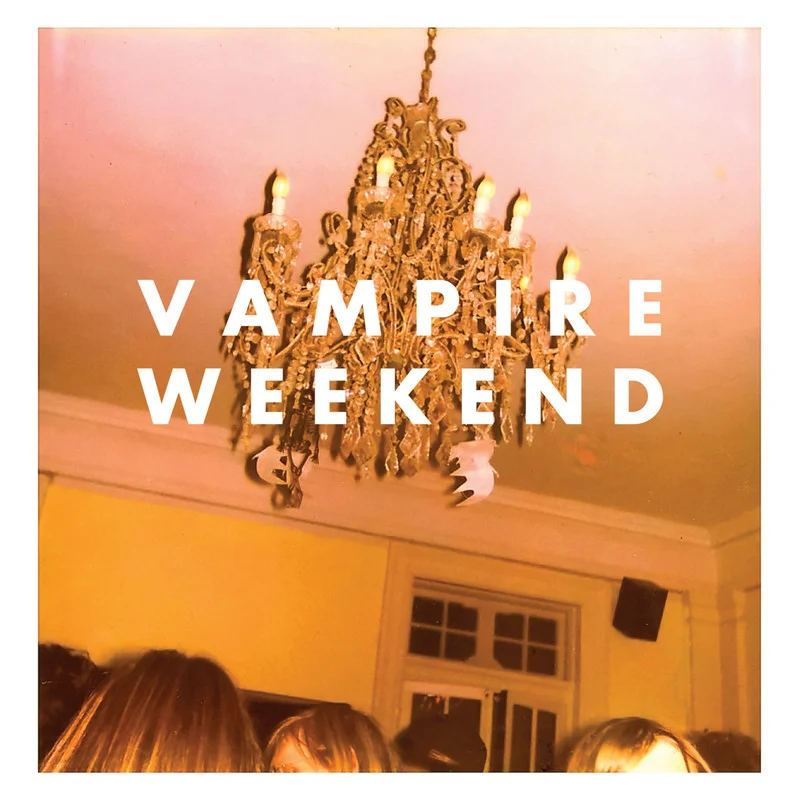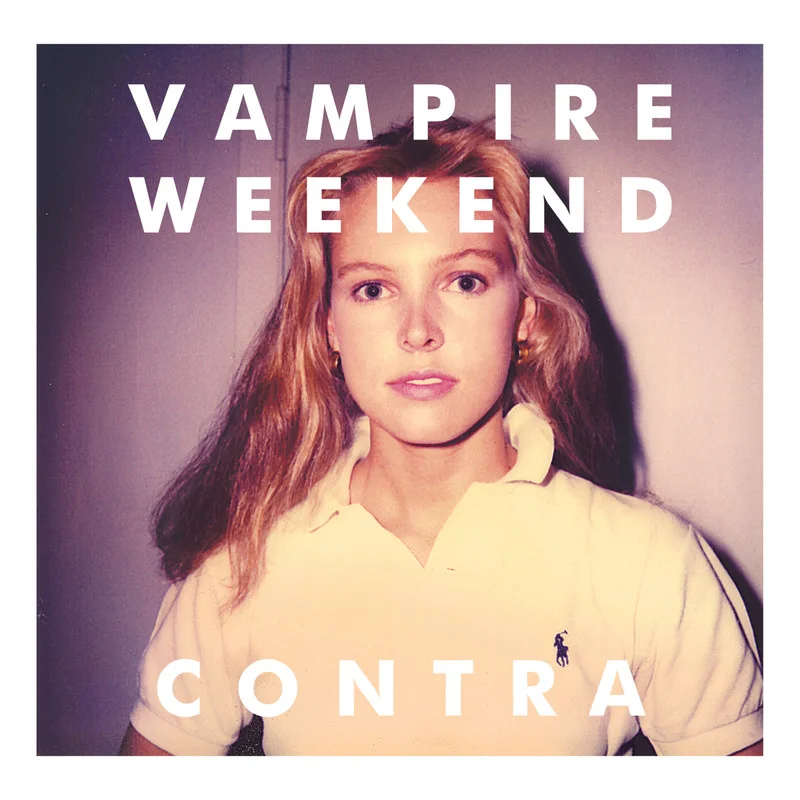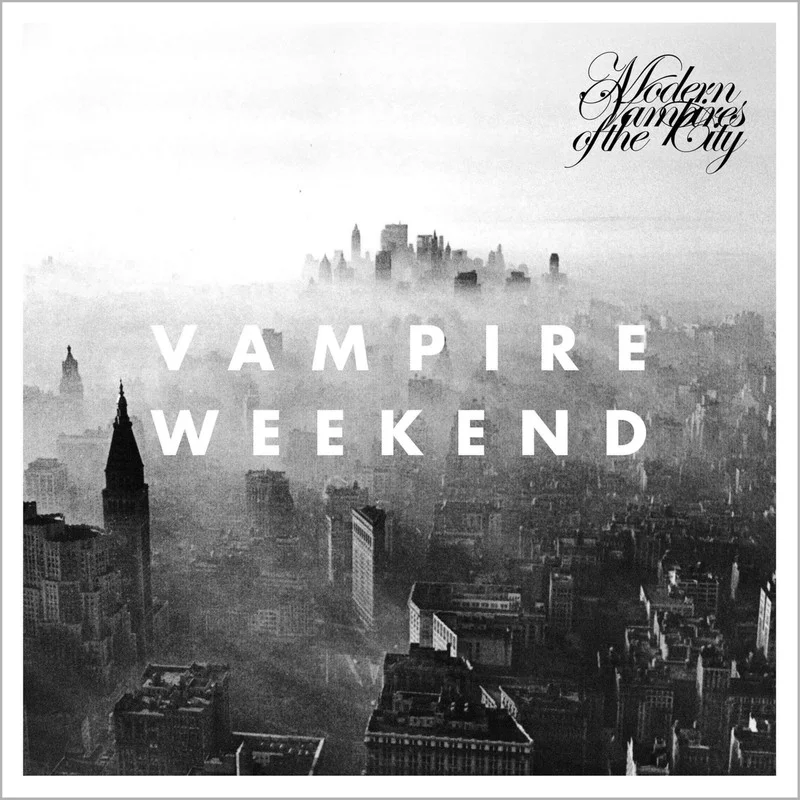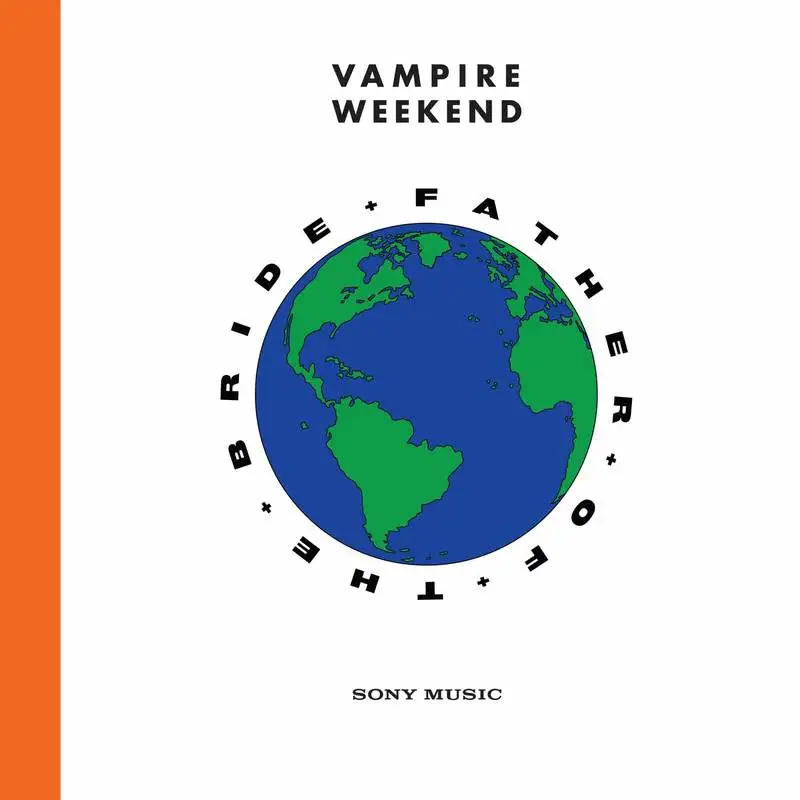On the fifth record, Vampire Weekend return with their most self-referential songwriting, excavating this band’s own grim, sometimes gentle fate.

“When Vampire Weekend came out, especially with the song Holiday on Contra, we were actively trying to start the ‘4th wave of Ska’”. the frontman Ezra Koenig said on Vampire Campire,their internal discussion session,”It’s debatable whether we did. (pause) I mean, actully no, we did. There was no wave like…” “I don’t think It’s debatable.” drummer Chris Tomson giggled. With a real campfire, there was a joyful vibe for 3 members of this band to talk about their musical roots and evolution. It’s also a warm-up for the band’s new album, Only God Was Above Us and unlike the two leading singles, Gen-X Cops and Capricorn, one struggling to reveal a certain kind of generation scar, the other casting comforting curses to the unwelcoming one’s fatalism, in real life, they stay content at where they are.
Before Vampire Weekend, no one really refers the word, “Punk”, to any concepts that underlyingly suggest “Excellence”, which is easily antagonistic. And A-Punk is the song, opaque and impressionistic, that Indie fans could capture ecstasy to follow the refreshing rhythm in 00s gloomy Rock landscape, while those immersed in the fury of Hardcore Punk seem to have every right to hate these sly and delicately corrupt boys from an ivy league university, asiding their weird and “culture-colonial” blender of Latin rega & Afro beats. It’s all clear that, comparing to The Clash’s growling or Au Pairs’ revolutionary optimism, Vampire Weekend in their blouses only took a slack glance at someone’s overflowing bragging about Oxford Commas and that’s exactly the world it live and die in.
Existential crisis arrived in time at their sophomore album, Contra, meanwhile, Vampire Weekend was trying to reach to a softer space surrounded by synthesized string sections. There are some cute and honest attempts, like I Think Ur a Contra, where Koenig tenderly warns himself or his lover, “Never pick sides/never choose between two”, and contradictly, make his own choice, “But I just wanted you/I just wanted you”.
Vampire Weekend peaked at Modern Vampires of the City, 3 year later. Ezra Koenig’s songwriting is like stained glasses in the dome of a goth church, scattering strange beams of light. Each line contains hidden imagery from different moments in human history while converging in a love ballad or gospel. The production is always parading at a steady pace, which is grand but not stiff, flickering with Koenig’s pondering. On Hannah Hunt’s 2 minutes and 40 seconds, there is a widely fan-favorite musical arrangement. Majestic piano being introduced in the middle of the song, with twisted and rising vocal, immediately breaks up the airy ghosted ambience and pushs the song to a climax. The thorny and intertwinded system and time in it are what this band confronts, with an awareness that everything is decaying, wisdom is tradable and time is nameless. In the last 3 songs of this album, Ya Hey, Hudson and Young Lion, Vampire Weekend separately burned out/seek for eternal caring, live in a world after Judgement Day and praise those who’s still young.
After a sunny yet political horror album, Father of The Bride, Vampire Weekend’s 5th album is loaded with some of their grimmest work with the gentlest touch. It’s calling for liberation.
“You don’t wanna win this war/’Cause you don’t want the peace.”Ezra Koenig sighs and following a piece of uplifting chords, he sings much harder “We’re all the sons and daughters/Of vampires who drained the old world’s necks.” And some twisted distortion sounds repeatedly whistle past whole album like a subway train. In their most self-referential release, those twee proper nouns or vague details that spring up and must be metaphorical(as usual) spontaneously remind you the old Vampire Weekend itself, rather than some delayed constructions on earth or historical events in a specific year. All is connected, the witty questioning, the parallel parables, and the old haunts. They are now their own prophet.
On Capricorn, the best song from this band that Koenig claimed, strange belief in a certain fate seems too big to not believe in. Koenig set it in a tragic and comforting tune, and once he come to the most paranoid moment(“Too old for die young/Too young to live alone”), he go down on a firm appeal(“I know you’re tired of trying/Listen baby you don’t have to try”). It’s not hard to tell that the numbness he feel to get rid of the “legacy” within him and he know it will continue going on. Meantime, the track’s name Capricorn itself is never entitled enough to be a substitue to “fate”. It only depends on the month who’s born in and suggests all is not that serious.
Long suffering from the past and the derived identity, It’s natural that Vampire Weekend throw an absolute doubt at the ones who bulit it. on Classical and Gen-X Cop, History was put in a mold in wartime, and pupils of the class, who started the war and ended it, would finish the polish work but still be cursed, waiting for liquidation by the succeeding generation.
The brightest part of Only God Was Above Us is Mary Boone, a story about an daughter of immigrants becoming a famed art dealer and entrepreneur, going to jail due to tax avoidance. With stately chorus, Koenig asks himself, still a little bit cynically, “Oh my love, was it all in vain/We always want money now the money’s not the same”. But in this song, It’s more about passion from scratch, deep personal memory rooted in the indelible past(again). The last part of refrains is the first contact in this album where Koenig reachs to an answer, “Mary Boone Mary Boone/Well I hope you feel like loving someone soon”.
The resemblance could be easily noticed between Pravda and Diplomat’s Son, in both the narrator thinking about leaving in autobiographical view. Diplomat’s Son, a covert gay love song from Contra if you don’t have any context, narrates that a male struggled to do his best friend and the two finally spilt up that night. However, Pravda comes out with the sharpest consciousness through Vampire Weekend’s catalog, where Koenig lists all the things that could make him not think about “Pravda”, like a map to guide someone to get out of Dostoevsky’s maze(he/her has been staying there too long!). “It’s just the Russian word for truth” Koenig warns, “Your consciousness is not my problem/’Cause when I come home It won’t be home to you”.
“I don’t know how many people have spent time, analyzing the lyrics. If at all, you don’t have to. But one thing I’ve thought about is ‘the untrue, unkind, and unnatural’. One thing that’s funny about putting ‘untrue’ at the top of the list, is that untrue could invalidate the entire statement.” Ezra Koenig spoke of the refrain of Classical, “So it’s like, actually none of this is true. So don’t worry. The cruel with Tom(The Great Gatsby) doesn’t become ‘Classical’”. the same trick is played on the last track, Hope. It’s the band’s longest song, an 8-minutes parallelism epic. Metaphors’ve been always serving as the keystone of this band’s songwriting. While “The bull has gored the matador/The US army won the war/The meaning died in metaphor”, the singer states at first verse, sounding like final throe in a soft tone. And this is where the band arrived. When It’s about to open its mouth, It denys what’s gonna be said; When anger can’t be hesitated, It understands what’s gonna happen is another loop. Blame on government, blame on late stage capitalism and blame on that God isn’t on your side. The enemy is invinciblne all along. There’s nothing left to hope for. But to hope, in a tender voice, Ezra Koenig sublates the “you” and “I” through the album and synthesizes one, “I had to let it go”, knowing old fate is written and must be forgiven.







